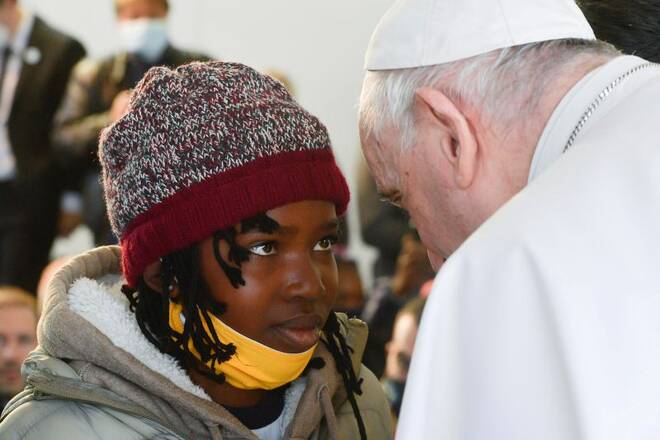Advertisement
Advertisement
Migrant rights defenders in Greece treated like criminals, says UN expert
By:
ATHENS (Reuters) - Human rights defenders in Greece, particularly those documenting the treatment of migrants and refugees, face smear campaigns and are treated like criminals, U.N. Special Rapporteur on Human Rights Defenders Mary Lawlor said on Wednesday.
ATHENS (Reuters) – Human rights defenders in Greece, particularly those documenting the treatment of migrants and refugees, face smear campaigns and are treated like criminals, U.N. Special Rapporteur on Human Rights Defenders Mary Lawlor said on Wednesday.
Lawlor was presenting her preliminary findings at the end of a 10-day visit to Greece where she met ministers in Athens and also visited the islands of Lesbos, Chios and Samos which were on the frontline of Europe’s migration crisis in 2015 and 2016.
“I am concerned about the increasing criminalisation of humanitarian assistance in Greece. Solidarity should never be punished and compassion should never be put on trial,” Lawlor said.
“At the tip of the spear are prosecutions, where acts of solidarity are reinterpreted as criminal activity, specifically the crime of people smuggling,” she added.
Lawlor said human rights defenders had found it increasingly difficult to carry out their work since 2019, especially in fields that might be considered “controversial or geopolitically complicated or sensitive”.
“The negative impact of such cases is multiplied by smear campaigns perpetuating this false image of defenders,” Lawlor said.
This policy created a “climate of fear and insecurity” that was reinforced by elements of the legal framework as well as statements from high-ranking government representatives attacking the work of NGOs, she added.
Responding to Lawlor, the migration ministry said Greece “fully respects the action of organized or individual human rights defenders active in the field of migration and asylum”.
Greece has also repeatedly denied accusations of so-called pushbacks of asylum-seekers, saying it intercepts boats at sea to protect its borders.
(Reporting by Karolina Tagaris; Editing by Nick Macfie)
About the Author
Reuterscontributor
Reuters, the news and media division of Thomson Reuters, is the world’s largest international multimedia news provider reaching more than one billion people every day. Reuters provides trusted business, financial, national, and international news to professionals via Thomson Reuters desktops, the world's media organizations, and directly to consumers at Reuters.com and via Reuters TV. Learn more about Thomson Reuters products:
Advertisement
